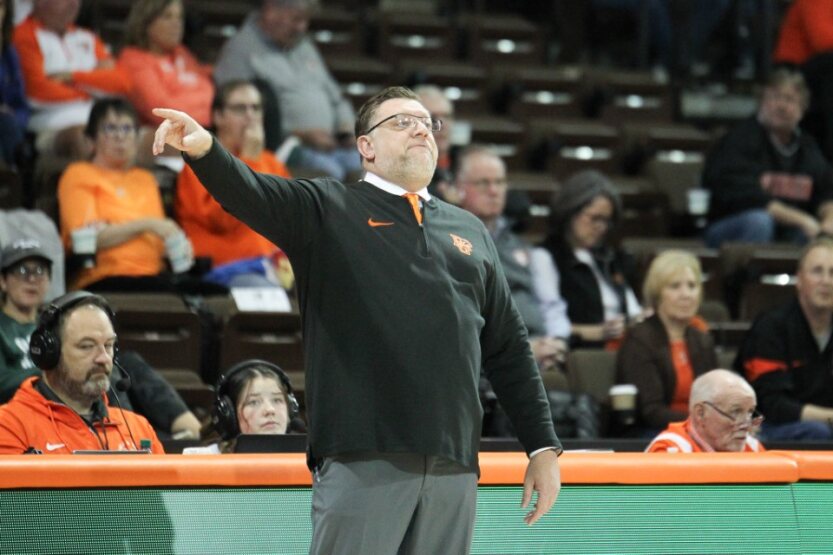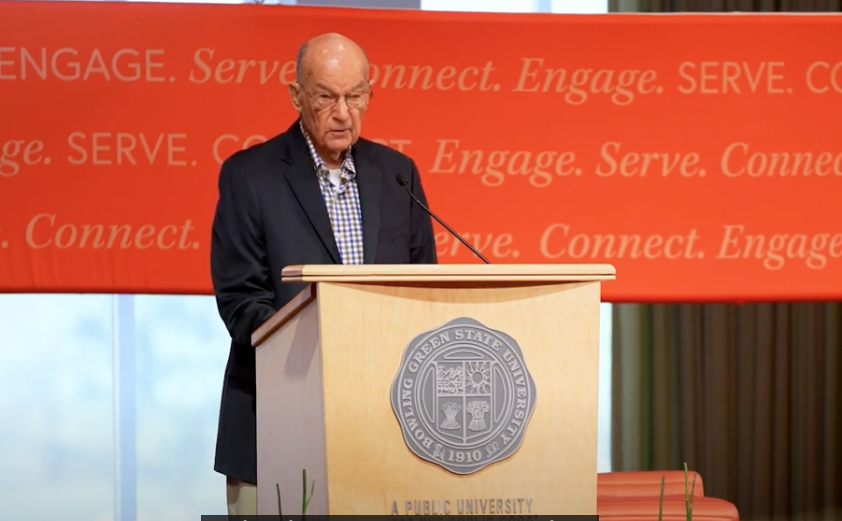Everyone and their pet chimpanzee have a computer or access to a computer lab. Even Amish people are walking into Gateway stores and walking out with personal computers and modems to enhance the quilting industry. It doesn’t stop there. The average Internet user has one or two screen names on AOL Instant Messenger. With all these IM’s shooting around the globe and over the University network, there are bound to be myriads of typos.
Pretty much everyone, including yours truly, makes hundreds of typographical, grammatical, and spelling errors each week. I’m taking a wild guess that the usage of word processors and e-mail will continue to increase as time moves forward. Logically, all these misspelled words and missing apostrophes will grow with the rise of technology.
The University has several wonderful classes that focus on technology and the benefits society can reap from it. There are many English classes in which students can develop writing skills and compose excellent essays. But where is the class whose emphasis is on spelling, and not typing “hte” instead of “the?”
Well, the most popular and loved corporation, Microsoft, solved this problem when their programmers developed Word. Their tool, known as AutoCorrect, will allow the typist to automatically change your misspelled words as you type. If you type “hte,” for example, it will automatically change it to “the.” Go in AutoCorrect and look at all the changes it will make. Then disable the tool and think for yourself. If you consistently spell a word incorrectly, and Word simply fixes your errors like a dog walker picking up his pet’s droppings, you will never learn what you did wrong, just like the dog will never learn to hold it until he gets to a Port-O-Potty.
Everyone makes bonehead typos. That’s what proofreading is for. Whether you’re typing a paper on the Holy Roman Empire, or instant messaging your friend to “stop downloading gay porn,” just take a second and make sure you spelled everything correctly. If you don’t know how to spell a word, then chances are you are not intelligent enough to use that word in everyday life.
Just for grins, I went to the University’s web site, and looked at the course directory. I put “etymology” (the study of the origins of words) into the search engine under the course description parameter, and received nothing. Not panicking, I decided to type “spelling” into the search engine. I received five results. Two of them were medical terminology classes. Two of them were classes for education majors. The fifth one was Intro to Journalism. None of these five actually focus on spelling. Remember grade school? Remember when everyone had to endure spelling class every year? Well, as juvenile as the class seemed, the older students must have forgotten everything they learned in those classes, as their spelling skills have deteriorated as their education developed. Maybe I am the only one who misses spelling class. After all, I did make it to the Toledo Blade Spelling Bee in eighth grade, and I finished in the top ten. That was the final step before the National Spelling Bee, and my only chance in life of making it onto ESPN.
Here’s my proposal: the University should implement a generic class devoted to spelling words right. Let’s call it SPEL 101. The class structure is simple: students will communicate to one another on some form of online communication, such as instant messaging or a chat room. Students will be encouraged to chat with one another casually or formally. Everything the class types will be stored in a log file that will be read over by the instructor, and he will give a daily grade to each of his students. The final exam will be nothing more than a normal class. The difference is that the final exam class will be weighed more. I know what you’re thinking: “Finally, a class where note writing is encouraged.”
The ramifications of the class would go beyond proper spelling. Students, on their own, would build up practical skills. And that’s hte bottom line. Oops, sorry about the typo.


















